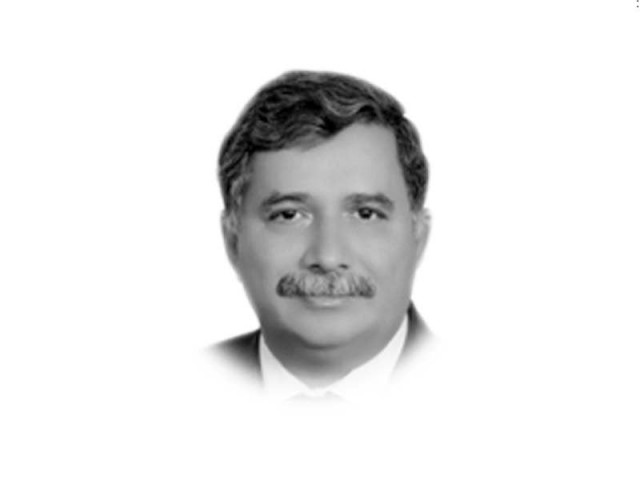Imran Khan: a phenomenon
In an open defiance to the state apparatus, Khan’s strategy appears to have worked so far

The high-pitched political drama surrounding the police’s attempt to execute the warrant of arrest for Imran Khan in Toshakhana case has ignited emotional debate all around. Khan’s opponents are taunting him for “avoiding a graceful surrender” before the law. Some have even gone to the extent of criticising the superior courts over what they call their soft treatment of the PTI and its workers. They allege that the judiciary is either scared of Khan’s bullying or hold a soft corner for him.
Khan and his supporters, on the other hand, accuse the government of hatching a conspiracy to oust him from politics by using all possible tactics. To them, all government actions are tainted with malice. Khan is himself accusing the government of harbouring nefarious designs to kill him. He has therefore told his supporters to keep a shield around him and help him avoid arrest.
In an open defiance to the state apparatus, Khan’s strategy appears to have worked so far. His supporters — thus far being ridiculed as being a ‘burgers and jeans’ class — have proved their loyalty and commitment to their leader, whether right or wrong. And Khan has been able to defy arrest, withstanding all the might of the state.
I am not in sync with many of the ideas professed by Khan and have suffered personally during his tenure as PM, but I think Khan needs to be analysed as a phenomenon. Why are people disenchanted with the traditional leadership? Why is such a large section of the population responding to his calls? Why are the parties in power shying away from facing him in electoral politics? A person having such a deep impact on political and social life of the country cannot be just ignored.
Imran Khan’s phenomenal rise is indicative of a new emerging middle and lower class of traders, doctors, lawyers, academia, social activists, NGOs and others, long ignored by the traditional ruling elite. Those in search of identity, having no space in old parties, found a convenient platform in the form of PTI. With aspirations of a dignified and comfortable life, they count on Khan for fulfillment of their dreams. Successfully articulating contemporary issues and socio-economic problems of the people, Khan has made his audience believe that he is their messiah.
According to Marx, “force is the midwife of every old society pregnant with a new one.” These comments are taken lightly by many critics who believe that the proletarian revolution will be an orgy of violence. However, Marxists explain that that Marx did not sum up a revolution in the terms of force. The midwife only intervenes at the critical moment of birth. Developments leading up to the birth and its time and place are factors beyond the control of midwife. The incubation has already been complete, and the leader like a midwife only pushes it to happen.
We thus have to understand that we are living in a society wherein the state is perceived by many as an instrument of class domination, and state power is exploited by the ruling elite to exploit the common people.
Khan has made his audience believe that there are two Pakistans: one for those having born with a golden spoon and the other for the hapless; and that primarily it is our schooling system that has given birth to and is nurturing this class divide.
According to statistics, 37.8% of Pakistan’s population lives below the poverty line; 38% of children are stunted due to malnutrition of the mother and the child; only 20% of the population has access to safe drinking water; and unemployment rate is 6.5%. Global Hunger Index 2022 Pakistan ranks at 99th out of 121 countries. With hunger score at 26.1 out of 50, the issue is ranked as “serious”.
All the aforementioned factors provide enough combustible material to ignite a revolution, and Khan is but a safety valve against such a revolution. The West avoided such a revolution by evolving a system of welfare state based on democratic norms. Pakistan can also address the problem by moving towards the concept of welfare state based on democracy.
Published in The Express Tribune, March 22nd, 2023.
Like Opinion & Editorial on Facebook, follow @ETOpEd on Twitter to receive all updates on all our daily pieces.














COMMENTS
Comments are moderated and generally will be posted if they are on-topic and not abusive.
For more information, please see our Comments FAQ